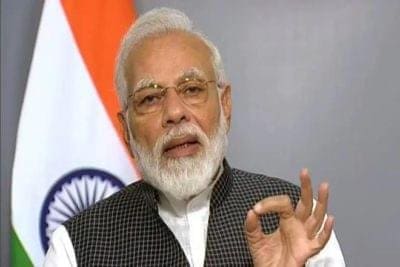India is likely to remain in the pact but with some safeguards and caveats in order to protect its interests.
Prime Minister NarendraModi on Monday took stock of the proposed Regional Comprehensive Economic Partnership (RCEP) trade agreement whose negotiations are in the final stages. Officials said India is likely to remain in the pact but with some safeguards and caveats in order to protect its interests.
These carve outs could pertain to future domestic policy concessions in investment and services sectors (called ‘ratchet’ in trade parlance) along with such concessions given to a trading partner under a bilateral treaty automatically getting extended to RCEP members.
While there was no briefing or statement after the meeting which lasted more than four hours, it was a crucial discussion with key economic ministries amid various ministries and industries including textiles and dairy opposing the pact due to China’s presence in it. Excluding dairy imports from the pact, protecting sensitive sectors from Chinese imports and investment are the key areas of concern.
The meeting was preceded by a spate of discussions among various ministries the entire day on the trade pact. Home minister Amit Shah met commerce and industry minister Piyush Goyal, finance Minister Nirmala Sitharaman, external affairs minister SubrahmanyamJaishankar and minister of state for commerce and industry Hardeep Singh Puri on the issue earlier in the day. “It was a divided house with two ministers against India joining the trade bloc. The home minister tried to bring in synergies,” said an official aware of the details.
Separately, the BharatiyaJanata Party met industry and other stakeholders to gauge the status of the pact which is expected to conclude next month when Modi participates in the Asean summit.
However, the actual agreement is likely to be signed in June 2020. The BJP has called the meeting as “RCEP and Free Trade Agreement (FTA) have acquired immense importance for India’s trade relation with South Asian Countries” and the region is a “focal area” of Modi’s Look East policy. BL Santosh, general secretary (organisation) of the BJP was present at the meeting. “While it was a mixed group, everyone aired their fears on China and allowing dairy imports. Those who supported India’s participation insisted that it should be done on the country’s own conditions,” said one person who attended the meeting. “The feeling is that India will go ahead with the agreement with adequate safeguards and exclusion of dairy. We were told that the PM is aware of these concerns and the political and dairy interest would be protected,” said the person.
The marathon meetings come ahead of Goyal’s visit to Bangkok later this week for the RCEP ministerial. The RCEP is a proposed FTA between the 10 member states of the Association of Southeast Asian Nations (Asean) and its six FTA partners — China, India, Japan, South Korea, Australia and New Zealand. RCEP negotiations began in November 2012 and have been under the scanner as industry fears cheap Chinese goods flooding the country once the agreement is signed. “Conclusion of the talks is a legal term meaning that Parliament will have to be informed about the pact,” said the first official.
Fears, solutions
India has offered to cut or eliminate tariffs on 80% of products imported from China but the offer is yet to be exchanged as there are talks of China offering steeper concessions in return. India plans to cut duties on 86-88% of imports from Australia and New Zealand, and 90% for products coming in from Asean, Japan and South Korea.
India may have to draw up a list of products on which it wants to use an auto trigger mechanism to raise duties if it sees a sudden surge in imports on particular items from a partner country and protect itself.
The commerce department is also grappling with concerns on many products, the concessions on which would vary among countries, called tariff differential in trade parlance.
“Tariff differential is an area of concern as long staging period and entry into effect are being deliberated,” said another official.
Moreover, the controversial investor-state dispute settlement (ISDS), which is out of the trade agreement for now but negotiations on the contentious issue will begin after three years.
“There are talks that ISDS may come in later and the finance ministry is concerned about that,” the second official said. India had advocated that local remedies should be exhausted before an investor can ask for third-party arbitration to resolve a dispute.
The country had opposed this mechanism fearing loss of sovereignty that comes with such arbitration, as had happened in the case of tax disputes with oil and gas explorer Cairn and telecom operator Vodafone. RSS-affiliate SwadeshiJagranManch (SJM) has termed the investment provisions “a meek surrender of the sovereign rights of any country to seek the transfer of technology from the investing companies, training to their domestic partners, and removing the cap on the quantum of royalties which domestic companies can pay to their foreign partners”. It has also said that import of cheaper milk and milk products would adversely hit the livelihood of 50 million milk producers in the country and shot down the auto trigger mechanism as it would require major calculations before being put into place.

